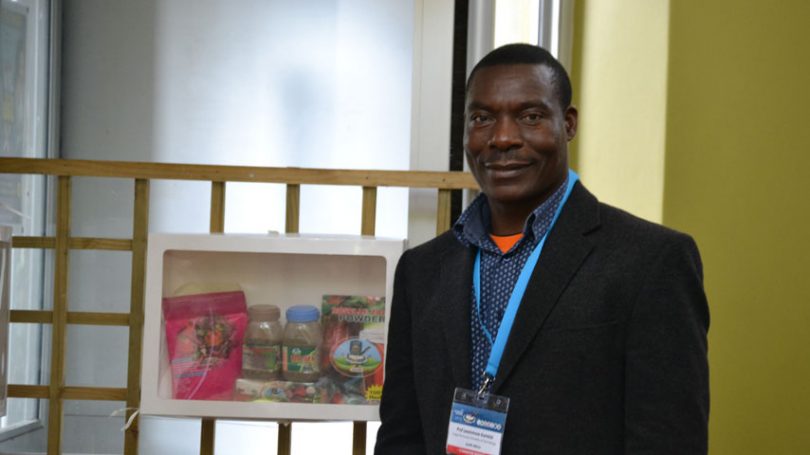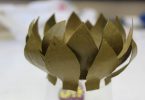Delegates at the recent U6 Conference held on District Six Campus got a taste for the work of the African Centre for Herbal Research.
Upon entering the foyer where the conference was held delegates would spot a display of teas. Anyone who lingered for more than few seconds in front of the display was approached by a very proud Prof Learnmore Kambizi who would explain the significance of the jars and packets.
In addition to being a senior lecturer at the Horticulture Department, Kambizi is also the director of The African Centre for Herbal Research which is based at the University of Ilorin in Nigeria.
The Centre was started as an initiative of the U6 Consortium to coordinate relevant research activities on African flora, stimulate research in herbal resources through the organisation of workshops and symposia, collate research proposals for funding centres, advise government in collaboration with other stakeholders and relevant agencies on issues related to the exploitation of African herbal resources and maintain a research library.
Kambizi regularly travels to the Centre in Ilorin when CPUT is in recess so as not to disrupt his teaching schedule. There he leads a team of ten researchers from various disciplines such as Chemistry, Pharmacy, Biochemistry and Agriculture and they maintain a garden of approximately 8000 square metres on that campus.
“We also have a small garden at the Bellville campus behind the Clothing and Textiles building. We have started growing some medicinal plants such as Carpobrotus edulis, Aloe ferox, Lemon grass, Perlagonium graveolens and many more.
“We hope this garden will be expanded as we are working with some herbalists from the townships here in Cape Town,” he added.
The teas on display at the conference, Basil and Roselle Zobo, were produced by the team at the Herbal Centre in Nigeria. They are not marketed or sold yet in Cape Town.
“These were displayed to show that there is serious work taking place at the Centre. However, these teas are sold at the University of Ilorin in Nigeria where the production takes place,” said Kambizi.
The reason they started making the teas was to produce a product that has nutritional and health benefits which might help local communities.
Selling the teas where they are produced meets the cost of production, plus students in Nigeria are trained to grow the plants organically. They also learn to harvest, process and manufacture the tea and deal with post-harvest technology used to process the raw material.
Next the teas have to be registered for consumption on an international level and Kambizi envisages introducing other herbal products such as capsules that could be used to treat particular diseases affecting local communities at affordable prices.
“Cutting edge research will unlock this potential and our findings will be published and eventually some of these products could even be patented,” he said.
Written by Theresa Smith
#horticulture







